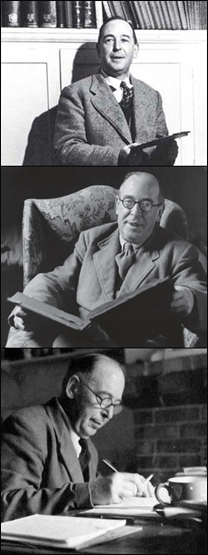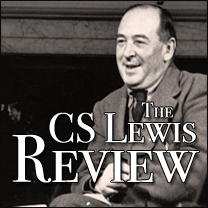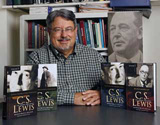
A Modest Proposal for Folks Inclined to Forward (Likely) Inaccurate Quotations Attributed to C. S. Lewis
May 18th, 2015 | Skip to comments
Stop. Just Stop.
If you love Jack, and you can’t help but express your admiration by posting a Tweet or Facebook post that features someone else’s borrowed post or meme, think twice.
If you didn’t find it yourself and you didn’t read it verbatim from a verifiable work of C. S. Lewis, don’t assume it’s genuine.
With the rash of lazily forwarded internet excerpts supposedly by Jack, chances are that that breezy and clever-sounding-cliche you can’t wait to send to all your friends is not by him. I call it the plague of excerptism.
Lewis is eminently quotable, and his prose is rhetorically rich, his diction pithy and memorable. It’s his uncanny ability to write striking sentences that tempts us to take a shortcut, to abbreviate whole paragraphs into bumpersticker mottos.
But he didn’t write to condition us to such trivial—and reductive—verbal pursuits. He’s trying to draw us further up and further in—to savor the fullness of a compelling exposition of an idea or ideal through to its semantic completion. To treat his prose so brazenly, and carelessly, dishonors his work and talent.
What’s with all the bother? If you truly revere the work of C. S. Lewis, then take the time (and the bother) to track down the source or demand the proper citation from the person responsible for the quote—so you can witness the context and preserve the progression of his argument. (It’s like someone who prefers to read a list of punch lines without the “interference” of the whole joke.)
And guess what: finding an internet “source” is not the same as citing Jack from his own published work with a page number and copyright date. In fact, a cardinal rule of any kind of responsible research is: don’t trust the internet. The internet is sloppy. And without conscience. It encourages sloth. And inaccuracy.
The indiscriminate lack of accountability and absence of reliable systems of verifiability within the internet breeds a progressive inaccuracy of Lewis quotations and the growing emergence of a “people’s C. S. Lewis.” By the latter, I mean the attribution to Lewis all kinds of popular, colloquially awkward, and essentially unworthy sentiments—–often enshrined in an ornate or artistic rendering of the quotation that speeds across social media unchecked.
Those most familiar with Lewis’s thought and characteristic ways of expressing himself (I mean, people who actually read his whole books) acutely experience a jarring effect when they encounter a false attribution or an inaccurate citation of something he supposedly said.
Excerptism minimizes and dilutes Lewis’s impact, especially to consumers all too accustomed to the sound-bite that restricts rather expands access to the larger, even more critical ideas to which it is intended to point. Simply put: recommending a pseudo-Lewis quote will eventually undermine your credibility, and certainly that of Lewis himself.
Today’s diminished attention spans and the accompanying premature, illogical conclusions drawn from counterfeit Lewisian passages may eventually distract readers away from, rather than toward, a writer like Lewis, who wishes to invite his readers for a complete meal, not just an appetizer. If one simply must irresistibly employ a Lewis quotation (I do know the feeling), try to follow these simple rules:
- Don’t obtain your wording (or citation info) from an internet “source”; if it doesn’t list one, that’s a bad sign. Don’t trust it. Internet “sources” that simply point to other internet sources are not reliable. Go to your own bookshelf and quote Lewis verbatim from the original book, chapter, and page, and list the full source in your message. You owe it to Lewis. And to yourself.
- If you don’t own a book personally that is purported to be the source from Lewis, you can at least attempt to do an Amazon (“Look Inside”) or Google search that contains a suitable annotation that indicates original source materials. Note: I still advise against this third-hand attribution. But any responsible citation will yield a publication by title, a page number, a publisher, and a copyright date. If you can’t locate it, don’t post it.
- A tell-tale sign of a fake Lewis quote is its use of any contemporary term or event that Lewis is unlikely to have been familiar with, or be unlikely would use because it obscures its message. For Lewis will always be clear, use vivid metaphors, and provide a memorable phrasing. This is especially true of trite Americanisms or typical, uninspired “inspirational” prose that is unworthy of Lewis’s usual eloquence and elegance (e.g., look for his use of rhetorical parallelism or avoidance of hyperbole).
- Likewise, beware any brutally, breezy, surface, modern attitude expressed toward anything [love, commitment, honor, faith, child-rearing, etc.] on which Lewis has written some extended and deeply profound things (The Four Loves, e.g.). If it sounds like Dr. Spock (or Dr. Seuss or Mr. Spock [Leonard Nimoy]) it is likely to be a false attribution, no matter how jovial.
- Finally, if you just have to quote, then use more than one line of the source materials to gather context, and choose a rather healthy excerpt to indicate the greater gist of what Lewis is trying to convey. Let readers find the door that Lewis opens for those hungry for a trustworthy mentor in this confusing world
Note:
A good primer to “quoting well” is found in how Lewis himself treated his beloved mentor, George MacDonald, in his little book, George Macdonald: An Anthology (Macmillan, 1947). Here you will find Lewis providing the steak and not just the sizzle of MacDonald’s poignant ideas, those that had the greatest impact on Lewis’s Christian development. Learn from his example.




Comments
No comments yet.
RSS feed for comments on this post.
Sorry, the comment form is closed at this time.